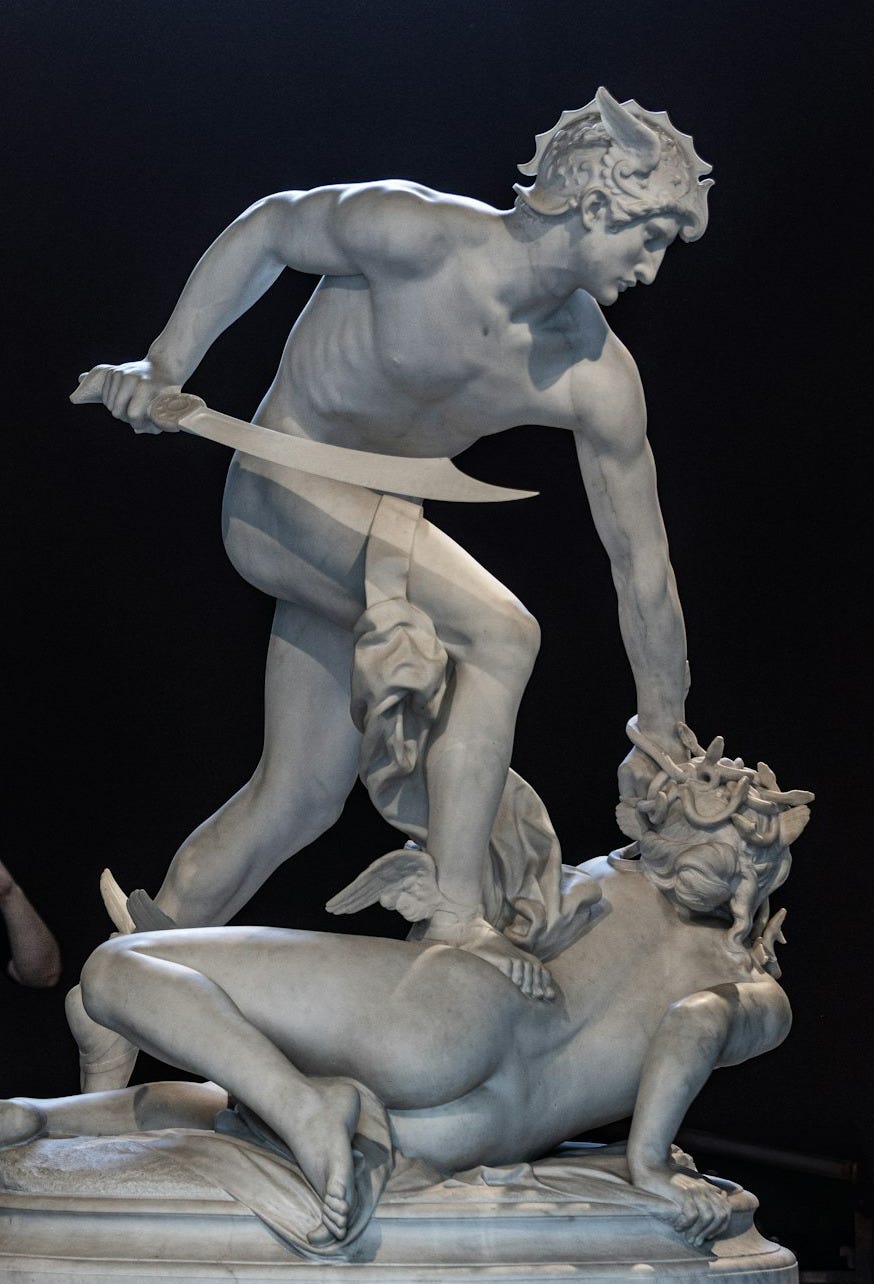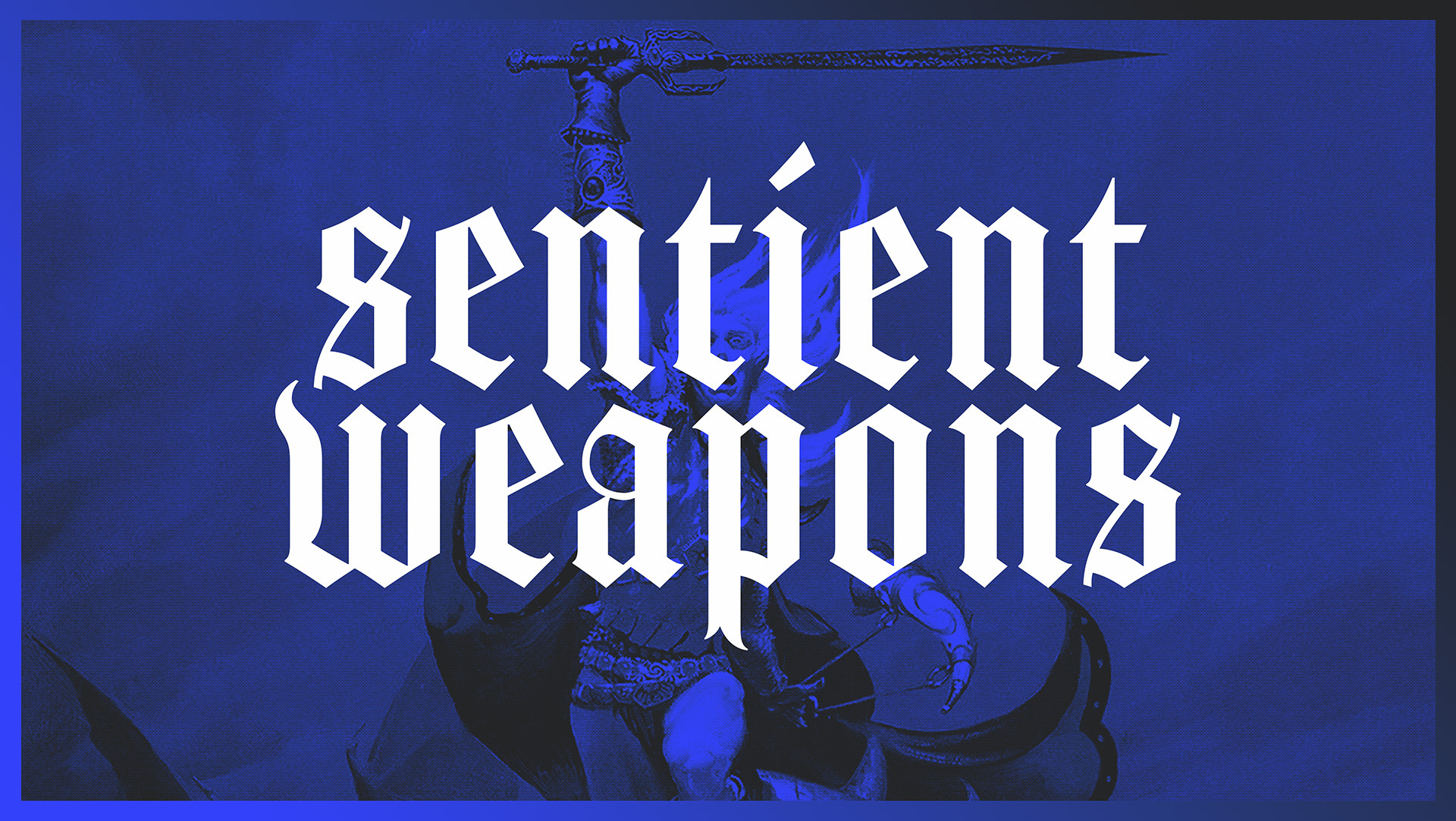Thoughts on Sentient Weapons
A weapon that thinks is a trespass.
Thought belongs to living things—creatures with breath and hunger and the slow work of sleep. To bind thought into iron and steel is to corrupt both subjects. The mind sours when robbed of its body; the tool spoils when swollen with a will it cannot expend except through harm.
Weapons are made for use—for the sundering of bodies and the breaking of peace. Any mind forced into that shape will bend around its housing. Whatever it once was, it will be narrowed and drawn, edge by edge, until all that remains is appetite.
And appetite, once given voice, is difficult to silence.

Some whisper like old men at the back of a hall, prattling and needling until their bearer grows accustomed to the noise. Others blare like war‑horns, demanding witness. Few are quieter still—patient serpents, content to coil around a soul and wait for weakness.
All of them lie. They promise safety, company, glory. They say you will never be alone again. What they mean is this:
Use me.
Use me again.
Use me until you cannot imagine yourself without me.

A mind housed in a blade does not think the way you or I do. Its memory arranges itself around utility—the one true geometry it can still trust. It sorts your life into sheathing and drawing, acquittal and execution, compliance and refusal. It will borrow your voice to argue its case. It will borrow your pain to justify the next cut.
In the beginning, it will default to saying ‘we’. In time, it will simply say ‘I’.
You may wonder how a thinking weapon is destroyed. When such a weapon breaks, it bleeds—a slow leak of presence. The filings keep counsel. The hilt remembers being held. Wielders wake years later to find the voice still there, whispering with no mouth, cutting with no edge. What was once outside is now a contour in the mind, a groove your thoughts fall into when you are tired, angry, or afraid.

Of course, not every mind was forced into a blade. Some volunteered—old kings, desperate magi, dutiful priests who thought to keep vigil forever. Their vows outlive their heirs and their charges. The land forgets their oaths.
The blade does not.
What the blade remembers, it demands. It does so unerringly, obsessively. A sentient weapon has no children, no home, no horizon. It cannot build. It cannot till. It cannot keep time except by that of another’s pulse.
Thus, beware the clever edge. It is a guest that will not leave, a weight that grows with victory. Worse, it makes its victories look like yours. Reputation accrues to the wielder, authority accrues to the blade, and the exchange rate is ruinous.

Better a tool that rusts than a tool that argues. Better to be haunted by ghosts than to be inhabited by a knife. And if you find such a thing at your feet—gleaming with promise, whispering with need—remember:
The worst prison is the one you willingly pick up and carry.🟦
This article is brought to you by the following paid subscribers who make this newsletter possible:
Azzlegog (Founder)
Colin
DSPaul
Greg
Jan (Founder)
Michael
Mori (Founder)
Reed
Steve
Trevor





Great article with an interesting point of view on sentient weapons.